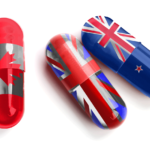Some conditions might now be off limits, but there is still plenty of room for concern.
Queensland Health announced last night that the scope of the North Queensland pharmacy scope of practice pilot had been finalised, with the program now “on track” to start in the second half of 2023.
The full list, published today, of conditions pharmacists will be able to autonomously prescribe for is:
- GORD
- acute nausea and vomiting
- allergic and non-allergic rhinitis
- impetigo
- shingles
- mild to moderate atopic dermatitis
- acute exacerbations of mild plaque psoriasis
- mild to moderate acne
- acute minor wound management
- acute diffuse otitis externa
- acute otitis media
- acute mild MSK pain and inflammation
- smoking cessation
- hormonal contraception
- oral health screening and fluoride application
- travel health
- overweight and obesity
The original list also included type 2 diabetes and COPD, but they are now consigned to a “structured prescribing” list along with hypertension, dyslipidaemia and exercise-induced bronchoconstriction.
AMA Queensland president Dr Maria Boulton told TMR: “We’re very concerned about the inclusion of hormonal contraception, given that the TGA ruled last year that the oral contraceptive pill should remain as a doctor-only script because there are some serious side effects.
“And as doctors, we also discuss the other alternatives to contraception, and we know the patient’s medical history so we know whether the pill’s the right thing for them.
“I don’t understand why the state government is acting against the scientific advice of the TGA.”
Pharmacists who participate in the pilot will also be able to prescribe programs for cardiovascular disease risk reduction, asthma and COPD as part of “structured chronic disease management”.
Dr Boulton said she was very concerned that pharmacists do not have the training and experience in diagnosis and examination to do this safely.
“Once again, they’re simplifying something that is quite complex,” she said, “because once again, they don’t know what they don’t know.”
Queensland Health, the Pharmacy Guild and other supporters of the pilot have typically focused on convenience and improved access as key benefits of the program, as well as reducing emergency presentations.
But AMA Queensland vice-president Nick Yim said data suggest that people who present at emergency aren’t the ones who are causing the delays.
“If we ask any of our emergency colleagues, it’s not those presentations that cause bed block,” he said. “Our communities are getting older, they’re getting sicker and we actually do need physical beds to get them through. So that argument is completely flawed.”
The Pharmacy Guild has also repeatedly said that widening pharmacists’ scope of practice merely brings Australia into line with what several other countries are already doing.
“Pharmacists practising to their full scope is not a new concept,” Queensland branch president Chris Owen said a couple of months ago. “The pilot will bring North Queensland pharmacists in line with pharmacists practising in parts of Canada, New Zealand and the United Kingdom and is expected to provide North Queenslanders the same positive health outcomes received by those countries’ residents.”
However, extensive research by TMR shows that the training required, the likely experience gained, restrictions, and the regulatory structures involved bear little resemblance to the way things are run in Australia.
“I guess from the pharmacist prescribing perspective, I’m probably quite horrified at the lack of understanding of what’s actually involved, but also the level of clinical knowledge that’s required,” Dr Linda Bryant, a general practice pharmacist prescriber based in New Zealand, told TMR for that feature story.
Dr Lee Jones, a North Queensland GP and AMA Queensland’s chair of general practice, said the lack of engagement with local communities worried him, with GPs in the region unaware of what might be expected of them once the pilot starts.
“Why are they pushing this experiment up in North Queensland, away from the cities?” he said. “Why have they not actually come and had a chat with us? The health minister and the Pharmacy Guild have been involved in the pilot, but have not reached out to the local grassroots doctors.”
Health Minister Yvette D’Ath said with the scope finalised, work had started “on implementing appropriate structures to ensure the pilot is safe and effective”. “Pharmacists participating in the pilot will undergo additional training to ensure they are able to safely manage the included conditions and responsibilities.
To participate in the pilot, pharmacists would have to do a graduate-certificate level course, including 120 hours of supervised prescribing practice.






